Boost your mood NATURALLY with these 20 feel-good foods
It’s not jut exercise that helps boost your mood, food does too!
Bananas are shaped like a smile and really do make you feel happy, walnuts resemble a brain and are great for brain health, while kiwifruit can help you get a good night’s sleep.
Food is designed to taste great and it some of it helps make us feel great too!
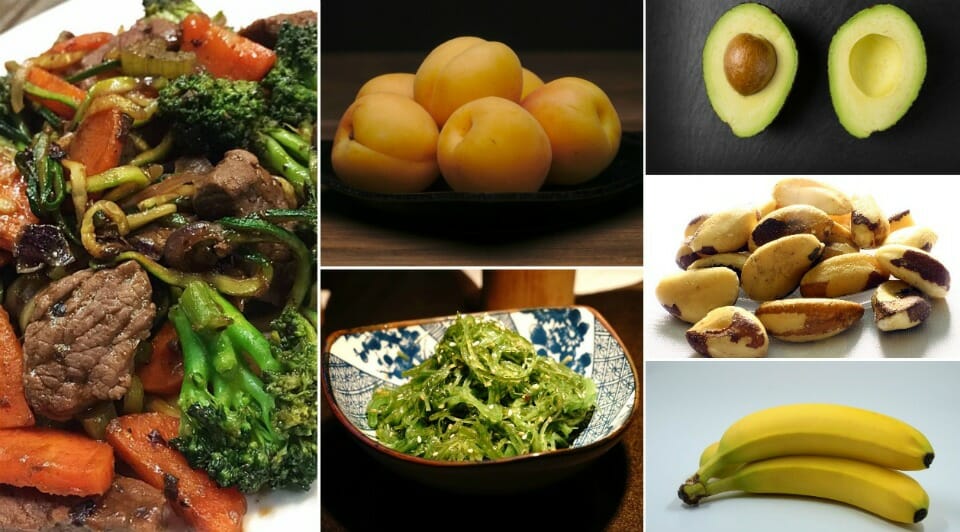
20 feel-good foods to help boost your mood NATURALLY
1. Cacao

Chocolate is the go-to craving food when we’re feeling down because of the magic of cacao.
As cacao is high in antioxidants, it’s protective against free radicals and has been shown to activate a pathway in the brain that may help prevent depression and anxiety.
The phytochemicals in cacao synthesise, modulate and activate lots of neurotransmitters involved in mood, cognition and energy. That’s why it helps us feel content!
Check out the recipe to our yummy 125 calorie cacao and peanut butter chip cookies, from the 28 Day Weight Loss Challenge.
2. Coconut oil
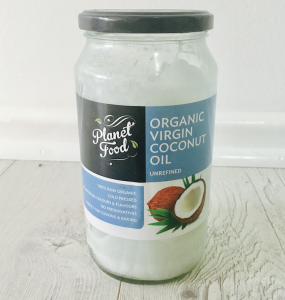
As coconut oil is a medium chain triglyceride oil it easily crosses the blood-brain barrier to provide your brain with an excellent source of energy.
It is anti-inflammatory, and lots of mood disorders are thought to be associated with neuro-inflammation, or inflammation in the brain. Coconut oil has been studied for its anti-stress and antidepressant abilities.
3. Chia Seeds
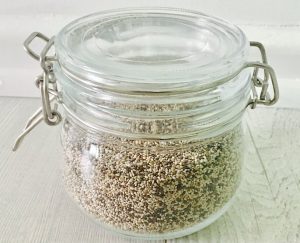
Chia seeds can help our moods in a few ways. The first is by aiding digestion. They are a great source of fibre, at 34g per 100g, so they help our bowel movements stay regular.
The texture of chia seeds help bind toxins and flush them out of the body. The second way chia seeds are beneficial for mood is due to the omega 3 fatty acid content.
Low levels of essential fatty acids are linked with mood disorders, so consuming them regularly in our diet helps to lower that risk. Combine with cacao, avocado and blueberries for a real mood boosting treat!
Here are 8 health chia seed recipes.
4. Banana

Eating a banana can make you feel happy because they contain tryptophan. This amino acid is turned into serotonin in the body which is one of our feel good neurotransmitters.
Perhaps the reason why a banana looks like a smile is because it can help make you smile! They are also a great source of fibre, helping our gut health by keeping our bowels regular.
Green banana fibre is a resistant starch which is super beneficial for tummy health as well.
5. Avocado

Avocados are a fruit that are pretty unique, being very high in fat. The fat of avocados helps balance blood sugars, alleviating that “hangry” feeling when we have a blood sugar slump.
They are a really nice source of folate, which supports our neurotransmitter production, helping elevate our mood.
Here’s the recipe for our delicious Chicken and Corn Quesadilla with Avocado Salsa recipe.
6. Brazil nuts
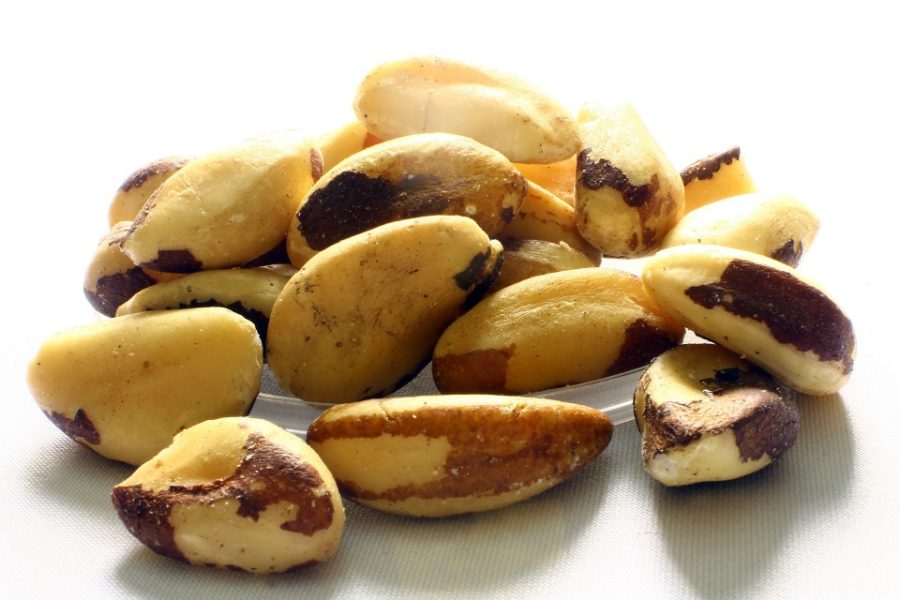
The edible seed of a rainforest tree, the Brazil nut is a really nutritious nut, containing high amounts of protein, unsaturated fats, vitamins and minerals.
The combination of the key nutrients selenium and vitamin E improve mood through their powerful antioxidant activity. Brazil nuts help activate detox pathways, balance hormones and reduce cellular damage.
7. Blueberries

Said to be one of the highest antioxidant foods, the plant chemicals in blueberries do amazing things for our moods.
They impact brain plasticity, which means they can help re-wire the brain to a different version of itself, by enhancing cognition, memory and learning. They protect the brain against ageing, oxidative stress and inflammation.
A specific plant chemical called Anthocyanin in blueberries also has anti-anxiety properties, and one study showed blueberries increased serotonin and was used to treat PTSD; so the little blue berry may keep the blues at bay!
8. Mushrooms
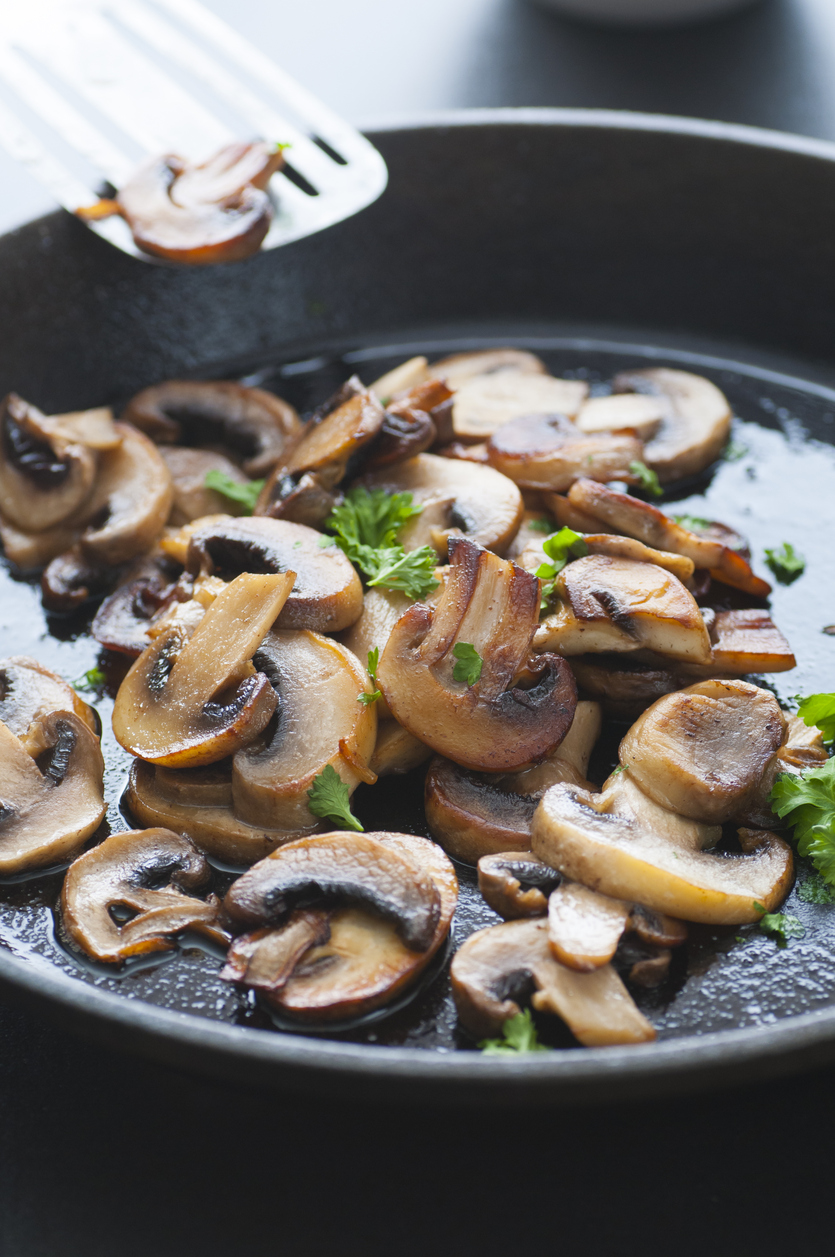
Making neurotransmitters in the body is a complex job, and the nutrients that do that job include a wide range of amino acids, fatty acids and vitamins and minerals.
Mushrooms are the highest source of the precursors L-tryptophan and 5-hydroxy-Ltryptophan, these turn into the neurotransmitter serotonin, which helps our happiness.
L-tryptophan also contributes to melatonin to help regulate our sleep patterns. We all know how cranky we can get after a poor night’s sleep, and melatonin helps us have a deeper more relaxing sleep.
9. Walnuts
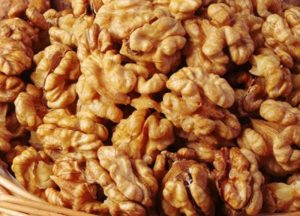
The nut that looks like a mini brain is great for brain health! As a source of omega 3 fatty acids, walnuts are able to improve mood.
They reduce inflammation, and are converted into chemicals needed by the brain that help reduce depression and boost immunity.
10. Kiwi fruit
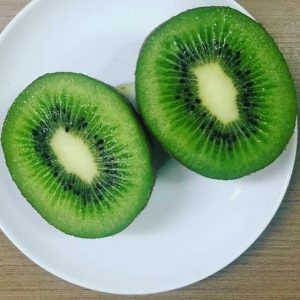
Full of fibre, and antioxidants, the most interesting thing about how Kiwi fruits can help our moods is by improving sleep.
A 2011 study showed that people who ate 2 kiwi fruits one hour before bed fell asleep easier and slept longer. This has got to make you feel great right!?
11. Turkey

Notorious for its sleep inducing abilities, turkey is high in tryptophan, which has been shown to be lower in people with a major depressive disorder.
Turkey has a notropic effect, which means it can benefit anxiety, depression, and sleep. Combining foods that are high in tryptophan with carbohydrate foods makes it more beneficial, so enjoy some pasta or rice with your turkey!
The recipe for our Roast Turkey with Pistachio Stuffing and Cranberry Gravy.
12. Eggs
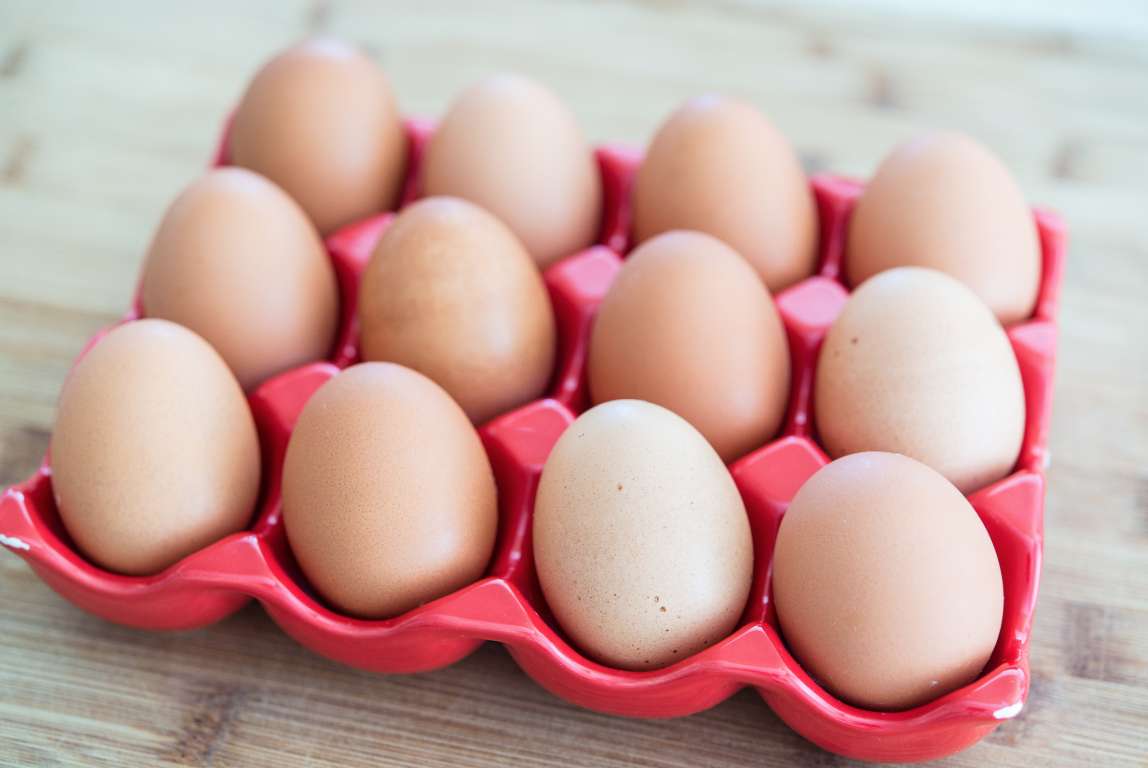
Eggs are a double whammy for a feel good food, the yolk is packed full of essential fatty acids and fat soluble vitamins and the whites are a great source of tryptophan.
Eggs also contain loads of taurine which is a precursor for another feel good neurotransmitter GABA.
13. Seaweed

Packed full of vitamins, minerals and antioxidants, seaweed is a nutritional power punch!
But what makes it so good for mood are the amounts of iodine and tyrosine it has and what they do for our thyroid.
Supporting our thyroid is a must to feel good, as depression and anxiety can be associated with low thyroid function.
14. Broccoli
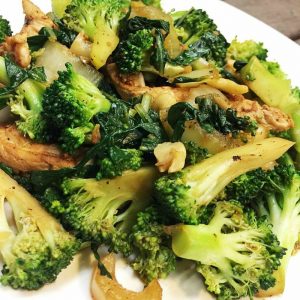
As it is high in Vitamin C, chromium and folate, broccoli supports the production of dopamine, serotonin and melatonin.
The Sulfurophane in broccoli supports liver detoxification pathways, reduces inflammation and helps hormone clearance.
All amazing metabolic processes that result in just feeling good!
Check out these 5 Ingredient Easy Cheesy Broccoli.
15. Yoghurt
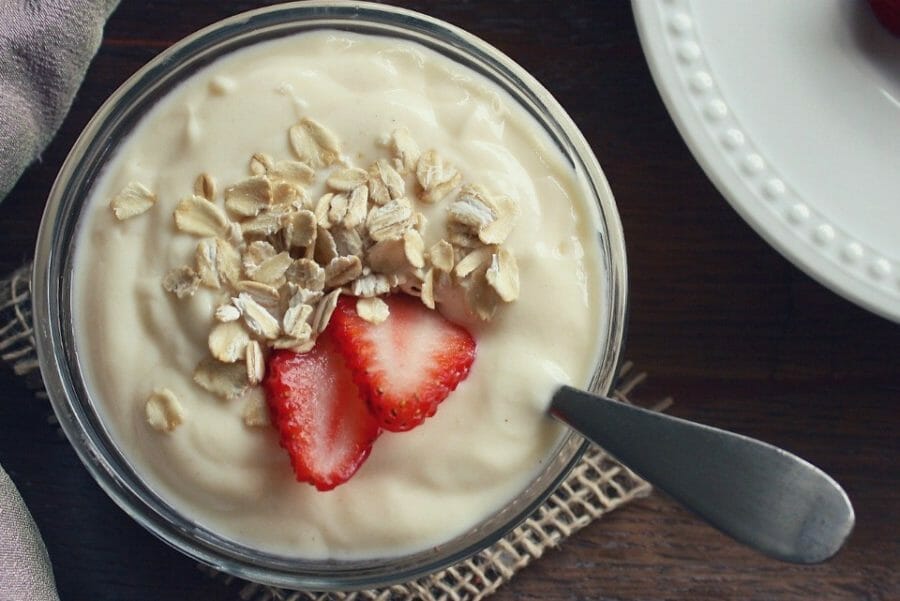
Full of probiotics, the good bacteria in yoghurt can play a very important role in fighting depression.
Lactobacillus affects metabolism and influences the gut-brain axis, a route in the body where the gut and the brain speak to each other. A happy gut makes for a happy brain.
16. Salmon

A good source of vitamin B12, eating salmon supports a process in the body called the methylation cycle which is the pathway that synthesises all of our neurotransmitters.
Without adequate B12, this process just wouldn’t happen.
But it’s the omega 3 content in salmon that makes it the star for mood, the essential fatty acids feed the brain and reduce the risks of depression.
17. Apricots
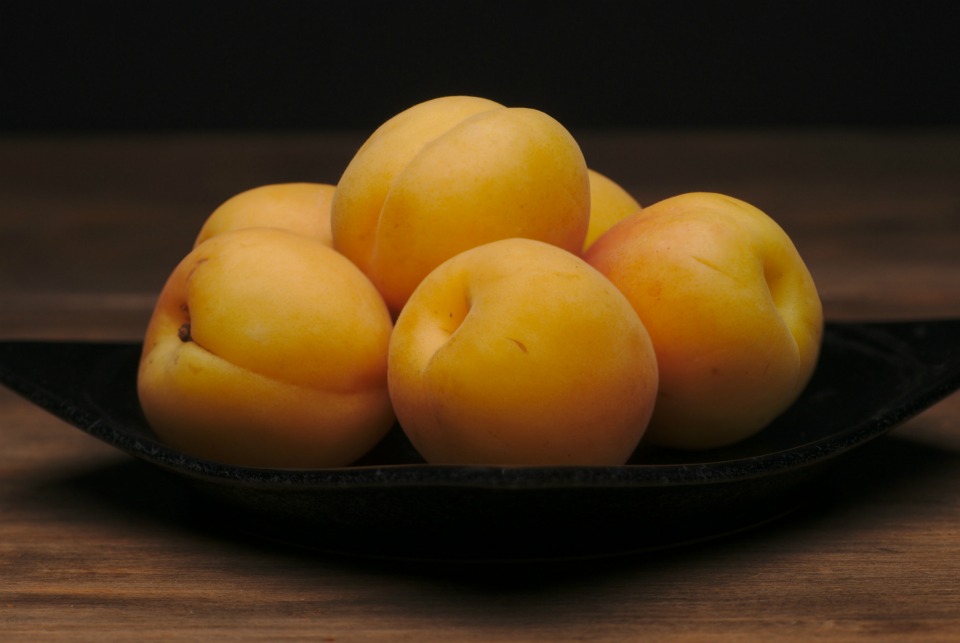
Awash with the flavours of summer, apricots make you feel good as soon as you bite into them.
It could be because they are like mini suns filling you with sunshine, but it’s actually due to the anti-inflammatory activity from the beta-carotene, catechins and flavonoids that they contain.
18. Kim Chi
Kim Chi is a superstar of fermented foods on account of the healthy bacteria and fibre content. Influencing our microbiome through eating the bacteria in kim chi helps us cope with stress better. It can alter brain activity, nerve signalling and improve gut integrity.
19. Oats
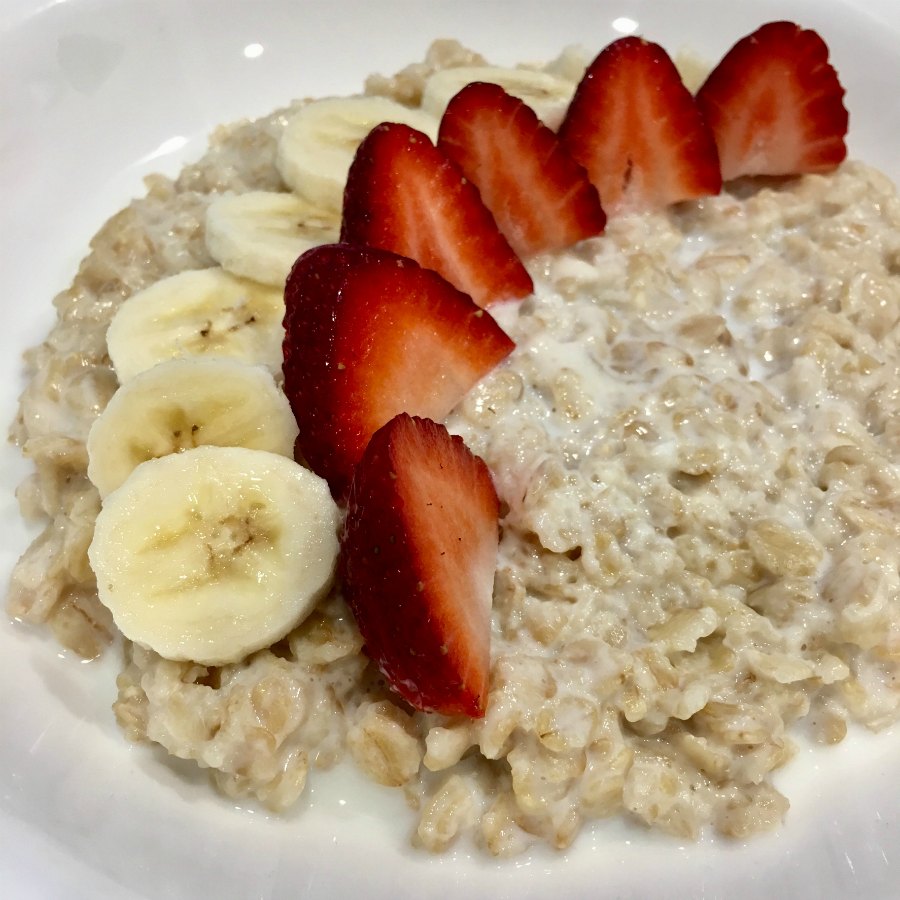
In herbal medicine oats are known as a nervine tonic as they settle the nervous system.
Consuming oats can help lower cholesterol levels, are an excellent source of fibre to help our digestion, and can help balance our blood sugars.
They contain tryptophan and vitamin B6, both needed for that all important feel good transmitter serotonin!
20. Beef
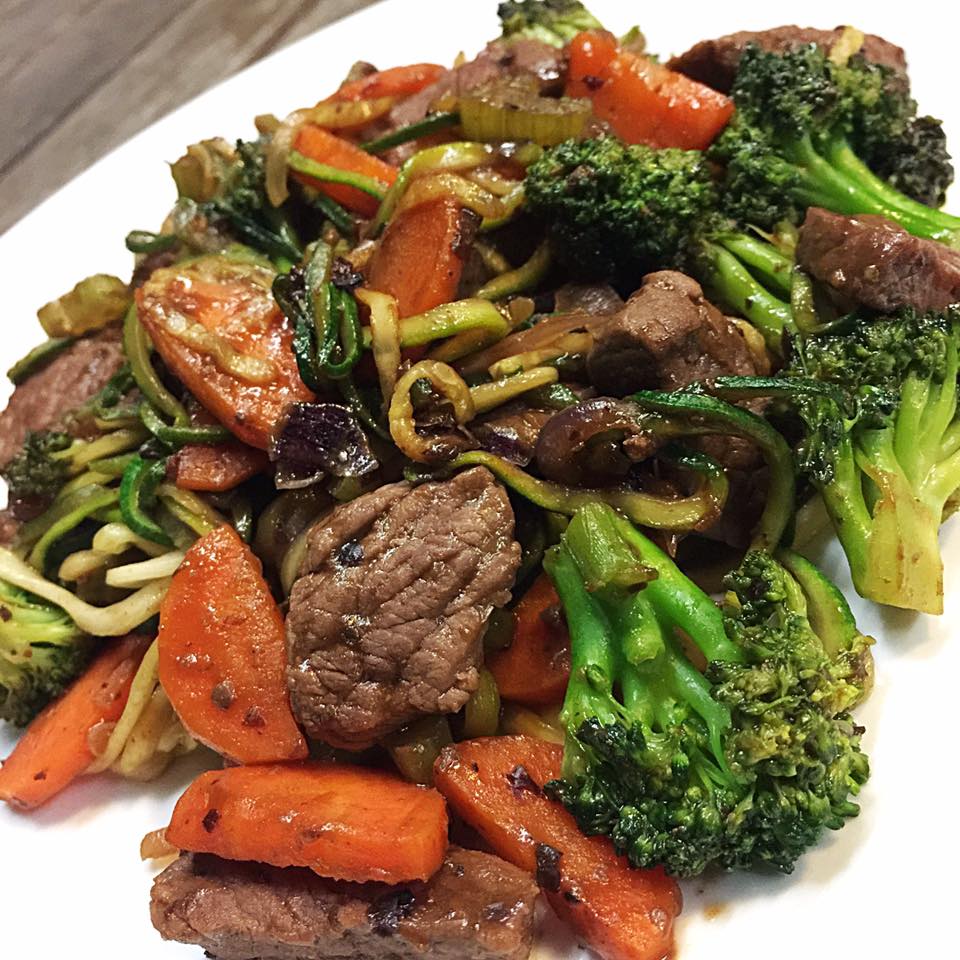
An Australian study showed that people who ate less than the recommendations of red meat were twice as likely to have anxiety or depression.
Considering the amount of vitamin B12 in beef and its impact on the methylation cycle, this makes heaps of sense.
Beef is also a really good source of iron, and a deficiency in this mineral is strongly linked to depression.
7 tasty beef recipes that take 30 minutes or less to make.
Access thousands of HEALTHY recipes on our Challenge

With more than 4,000 delicious (and healthy) recipes, customisable meal plans, 350 exercises & 24/7 support – the 28 Day Weight Loss Challenge is designed (and proven) to help busy mums like you lose weight!









